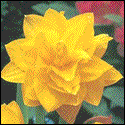
FREE Garden Journal!!
Join "Garden Notes" and plan for Harvest Success as you track and record your gardening progress. Your Free Personal Garden Journal has pages for jotting down notes on the seeds you start, your new plantings, when you fertilized, and even a graph to plot a new garden.
Sustainable Gardening |
Trees & Shrubs |
Flowers |
Composting |
Soil |
Tools |
Books |
How To's | Technique | Practical Advice | Children | Internet Gardening | Vermicomposting | Pest Management
How To's | Technique | Practical Advice | Children | Internet Gardening | Vermicomposting | Pest Management


The Benefits of Organic Composting
- Produce your own rich, beneficial soil additive
- Discard less garbage and pay lower garbage bills
- Conserve earth's resources
- Protect and improve your environment
Use compost on your yard and garden to improve your soil:
- Compost returns nutrients to the soil such as phosphorus, potassium, magnesium, zinc, manganese, iron and boron
- Compost improves the texture or "tilth" of the soil providing:
- Easier cultivation
- Better water retention in loose or sandy soils
- Better drainage in clay or other heavy soils
- Less plant distress from over wet or over dry conditions
- Healthier plants which require far less commercial chemicals
(fertilizers, pesticides etc.) - Compost reduces soil diseases by feeding the soil a balanced diet
Compost is an attractive and valuable mulch that:
- Promotes weed and erosion control
- Protects plant roots from sun and wind damage
- Conserves water
Make and use compost at home -
SAVE $$ and RESOURCES:
- Lower garbage bills
- Free soil additive, replacing most yard and garden chemicals
- Lower water bills
- Less work weeding
- A feeling of achievement when your yard and garden are more attractive and you are doing your part to save resources - and replenish the earth